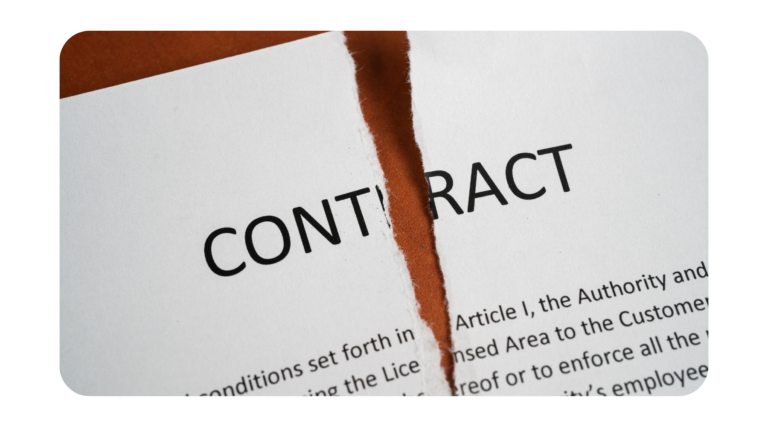Navigating Business Litigation: Expert FAQ Guide for Legal Clarity
Welcome to our comprehensive guide on business litigation and disputes—a valuable resource for those seeking expert advice and insights. Business disputes are an inevitable aspect of the corporate world, and understanding how to navigate them effectively is crucial for safeguarding your business interests.

Business Litigation FAQs
Whether you’re a business owner, executive, or professional, this FAQ guide, curated and answered by our seasoned business litigation attorney, Ruben Ruiz, is designed to provide clarity on some of the most commonly asked questions in this complex arena.
While this guide offers valuable insights, please remember that it is not a substitute for legal counsel tailored to your unique circumstances. For personalized guidance and to discuss your specific situation, we encourage you to reach out to our experienced business litigation team. Let’s embark on this journey to demystify business disputes and explore the path to resolution together.
Contract Disputes

If the other party breaches a contract, you may seek remedies such as damages, termination of the contract, or in some instances specific performance.
While oral contracts may be enforceable in some cases, having a written contract provides clearer terms and evidence, and a longer statute of limitations, making it easier to enforce in California courts.
Yes, you may be eligible to claim consequential damages, lost profits, or punitive damages if you can demonstrate that the breach caused additional harm in a contract dispute in California.
Yes, if the contract is written, California generally has a four-year statute of limitations for filing a breach of contract lawsuit from the date of the contract breach. If the contract is oral, the statute of limitations is generally two years from the date of the breach.
Yes, alternative dispute resolution methods like mediation or arbitration can be effective in resolving contract disputes outside of court in California.
The court will generally assess factors such as offer and acceptance, consideration, capacity of parties, mutual assent, and the absence of fraud or undue influence when evaluating contract validity in California.
California law allows for recovery of attorney’s fees if the contract contains a prevailing party clause or if specific statutes provide for fee recovery.
In certain circumstances, an oral modification to a written contract can be enforceable in California, but it’s generally better to have any changes in writing.
Yes, parol evidence (oral or written statements made before or during contract formation) may be used to clarify ambiguous terms in a contract in California.- this is dicey I would not use this, too complicated of an issue.
If a contract is deemed unenforceable, the court may declare it void or unenforceable, and the parties may need to restore each other to their pre-contractual positions.
Partnership and Shareholder Disputes

Yes, partners owe each other fiduciary duties of loyalty and care, and a breach of these duties can be grounds for a lawsuit in California.
If there is a disagreement on partnership dissolution, the partner seeking dissolution may file a lawsuit for judicial dissolution in California.
Yes, California law provides procedures for shareholders to petition for the removal of disruptive or oppressive shareholders under certain circumstances.–This is securities related litigation and we would generally not take these cases.
The business judgment rule protects directors and officers from personal liability for decisions made in good faith and in the best interest of the company, even if they lead to disputes or company losses.
Yes, shareholders have the right to file a lawsuit against corporate officers for mismanagement, waste of corporate assets, or breaches of fiduciary duties in California.
Yes, California law grants minority shareholders the right to inspect certain corporate records to protect their financial interests.
Without a formal partnership agreement, it is essential to rely on California’s default partnership laws and consider drafting a written agreement to clarify rights and responsibilities.
Yes, shareholders have the right to sue the company if they believe their ownership interest has been unfairly diluted without proper justification in California.- this is securities litigation and we would generally no handle these cases.
Generally, shareholders are not personally liable for the company’s debts, but certain circumstances, such as piercing the corporate veil, may lead to personal liability in California.
Shareholders’ ability to sell shares to third parties without consent varies depending on the company’s articles of incorporation, bylaws, or shareholder agreements in California.
Fraud and Misrepresentation

To establish fraud or misrepresentation, you must demonstrate that there was a false representation, the speaker’s knowledge of its falsity, intent to deceive, justifiable reliance, and resulting damages.
Yes, you can pursue civil remedies through a lawsuit and criminal charges through law enforcement for fraud cases in California.
Yes, generally, you have three years from the date of discovering the fraud (or should have reasonably discovered it) to file a lawsuit in California.
Damages in a fraud lawsuit can include compensatory damages, punitive damages, rescission of a contract, and restitution in California.
Yes, parol evidence (oral or written statements made before or during the contract) may sometimes be used to prove fraud or misrepresentation in California.
Yes, a business may be held vicariously liable for the fraudulent actions of its employees if they were acting within the scope of their employment in California.
Yes, you may have a claim for fraudulent inducement if false representations induced you to enter a contract and you suffered damages as a result in California.
Yes, California’s Unfair Competition Law (UCL) prohibits unfair, fraudulent, or deceptive business practices that harm consumers and competitors.
Yes, false statements made about a competitor’s products or services that harm their business may be subject to legal actions such as unfair competition or defamation in California.
Real Estate Investor Disputes

Yes, you may have grounds to sue a real estate agent if they misrepresented property details or engaged in fraudulent practices during a real estate transaction in California.
Yes, California law requires sellers to disclose known material defects in a property to potential buyers, and failure to do so may result in legal action.
Yes, property management companies have a duty to act with reasonable care, and negligence resulting in harm or financial loss may lead to legal action in California.
Yes, if a real estate developer fails to fulfill contractual obligations, you may have a valid claim for breach of contract and seek remedies in California.
Attempt to resolve the dispute through negotiation or mediation. If unsuccessful, consider seeking legal advice and potentially pursuing a lawsuit to protect your interests.
Specific performance, compelling the seller to fulfill the terms of the purchase agreement, may be sought as a remedy for some breaches of contract in California.
Yes, victims of real estate investment scams may seek damages for financial losses and may also report the scam to law enforcement or regulatory agencies in California.
Debtor/Creditor Disputes

To obtain a judgment lien, a creditor must first sue and obtain a court judgment against you, and then file the judgment with the county recorder’s office in California.
Yes, negotiation and debt settlement with creditors are common approaches to resolve outstanding debts, but it’s essential to ensure any agreements are well-documented.
Yes, creditors may repossess collateral for a secured loan if you default on the loan payments in California.
Yes, in some cases of judicial foreclosure, if the sale of the repossessed or foreclosed property does not cover the full debt amount, the creditor may seek a deficiency judgment to collect the remaining balance in California.
Yes, creditors with a valid judgment may obtain a writ of execution to seize funds from your bank accounts in California.
Generally, creditors have four years from the date of default to file a lawsuit to collect on a debt in California.
While attempting to sue for a time-barred debt is not permissible in California, it is essential to raise the statute of limitations as a defense if a creditor attempts to collect on an expired debt.
Promissory Note Disputes

A promissory note is a written agreement between a borrower and a lender that outlines the borrower’s promise to repay a specific amount by a certain date, including terms like interest rate and payment schedule.
If the borrower defaults on the promissory note, you may attempt to negotiate a resolution outside of court, but if unsuccessful, you may need to file a lawsuit to enforce the note in California.
While it is possible for a promissory note to be orally modified, it is generally better to have any changes in writing to avoid disputes over the terms in California.
Yes, lenders can assign their rights under a promissory note to another party, subject to any restrictions or limitations in the note or applicable law in California.
Yes, if the promissory note includes provisions for the recovery of interest and attorney’s fees, you may seek these amounts as part of the enforcement action in California.
Yes, you can voluntarily forgive or release a debt under a promissory note by executing a written release or satisfaction in California.
If there is a dispute over the signature’s authenticity, you may need to present evidence to prove the signature’s validity in a promissory note dispute in California.
In California, the statute of limitations for enforcing a written promissory note is four years from the date of the borrower’s default.
Yes, parties can negotiate modifications to the promissory note’s terms even after the borrower defaults, but it’s crucial to have any changes in writing.
Yes, acceleration clauses in a promissory note allow the lender to demand full repayment of the outstanding balance if the borrower defaults on specific terms in California.
Commercial Collection of Unpaid Contracts

Commercial debt collection involves demand letters, negotiation, possible mediation, and, if necessary, filing a lawsuit to enforce the debt.
Yes, you can file a small claims lawsuit to recover commercial debts up to the specified limit in California.
Yes, collection agencies can assist in the collection process, but they must comply with state and federal laws governing debt collection practices in California.
Yes, you can typically charge interest on unpaid commercial debts as long as it complies with California usury laws and the terms of the contract.
If the contract or applicable law allows for the recovery of attorney’s fees and collection costs, you may seek reimbursement as part of the collection process in California.
If you obtain a judgment against the debtor, you may seek a writ of execution to seize and sell the debtor’s assets to satisfy the unpaid commercial debt in California.
Once a debtor declares bankruptcy, an automatic stay is triggered, which temporarily halts collection efforts. You must adhere to bankruptcy court proceedings to pursue your claim in California.
Yes, negotiating a settlement for a lesser amount with the debtor can be an option to resolve the debt without going through litigation in California.
Yes, you can sell the debt to a third-party debt buyer, but you must follow California laws and ensure proper documentation during the sale process.
Yes, you can report unpaid commercial debts to credit bureaus, but you must comply with the Fair Credit Reporting Act and ensure accurate reporting in California.
Unfair Competition (§17200 Claims)

The UCL prohibits unfair, unlawful, or fraudulent business practices that harm consumers or competitors, providing a broad scope for legal claims in California.
Yes, both consumers and competitors can bring claims under the UCL if they suffer harm from the defendant’s unfair business practices in California.
Remedies for UCL violations can include injunctive relief, restitution, disgorgement of ill-gotten gains, and attorney’s fees, but not punitive damages.
Yes, businesses can be sued for UCL violations if their deceptive advertising practices mislead consumers in California. We generally do not handle these cases.
Yes, competitors may bring UCL claims if false statements harm their business by deceiving consumers or damaging their reputation in California.
Yes, class actions are common in UCL cases when multiple consumers or competitors have been affected by the defendant’s unfair practices in California.-We do not handle these cases.
Yes, a court may grant an injunction to stop ongoing unfair business practices by a competitor in California.
Yes, businesses can be held vicariously liable for UCL violations committed by their employees acting within the scope of their employment in California.
Yes, the California Attorney General has authority to bring actions against businesses for UCL violations in California.
The statute of limitations for filing a UCL claim is generally four years from the date the cause of action accrued in California.
Misappropriation of Funds

Misappropriation of funds occurs when someone unlawfully uses or redirects funds belonging to another for personal gain or unauthorized purposes.
Yes, individuals can be sued for misappropriation of company funds if they unlawfully divert funds or misuse them for personal purposes.
Yes, under certain circumstances, punitive damages may be awarded if the misappropriation involved intentional fraud, malice, or oppression in California.
Yes, if a corporate officer is found to have misappropriated funds for personal gain, they can be held personally liable in California.
Yes, misappropriation of funds may be considered a criminal offense, and you can report it to the appropriate law enforcement authorities in California.
Yes, misappropriation of funds can result in both civil liability, where the wronged party seeks damages, and criminal charges, if prosecuted by the state in California.
Employers may be held vicariously liable for an employee’s misappropriation of funds if the employee was acting within the scope of their employment in California.
Yes, misappropriation of funds can occur in nonprofit organizations, and those responsible may face civil and criminal consequences in California.
Yes, parties involved in a misappropriation of funds dispute may attempt to reach a settlement through negotiation or mediation to avoid prolonged litigation in California.
Yes, during a lawsuit involving misappropriation of funds, you may request an accounting to determine the extent of the misappropriation and the damages suffered in California.
Misappropriation of Trade Secrets

Misappropriation of trade secrets involves the unauthorized acquisition, use, or disclosure of valuable confidential information belonging to another business.
Yes, you may seek a court order for injunctive relief to prevent further unauthorized use or disclosure of trade secrets during a lawsuit in California.
Yes, if you can prove that the former employee used or disclosed trade secrets without authorization, you can sue for damages and seek injunctive relief in California.
While a confidentiality agreement can enhance trade secret protection, trade secrets can still be protected if reasonable efforts are made to maintain their secrecy in California.
Yes, misappropriation of trade secrets can be considered a criminal offense, and perpetrators may face criminal charges in California.
Yes, if you can demonstrate that your competitor obtained and used your trade secrets without authorization, you can pursue legal action in California.
Yes, you may seek damages for economic losses suffered due to the misappropriation of trade secrets in California.
Yes, in certain circumstances, you may obtain an ex parte order to seize misappropriated trade secret materials to prevent further harm in California.
Yes, you can use trade secret protection as a defense if you believe that the information claimed as a trade secret does not meet the legal criteria in California.
Yes, a business may be held vicariously liable for the misappropriation of trade secrets by its employees acting within the scope of their employment in California.
Please note that the information provided here is for informational purposes only and should not be considered as legal advice. Legal matters can be complex and fact-specific, and it is essential to consult with a qualified attorney for advice on specific legal issues.
Serious inquiries only, please.
Our consulting fees start at $250 for half an hour.
If we decide to work together, the fee for the initial consultation will be credited to your account.
Get to know our team.
"*" indicates required fields
